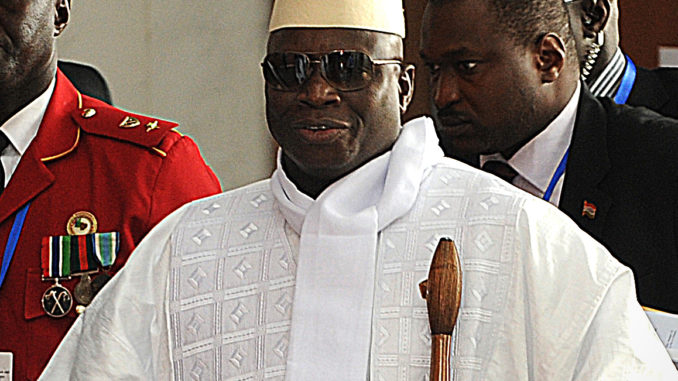
BANJUL/DAKAR (Reuters) – When Gambian intelligence officers arrested journalist Ebrima Manneh at his newspaper, he asked an office guard to save some tea.
“I’m coming right back,” he said, according to colleague Alhagie Jobe, who was present in the newsroom. That was on the afternoon of July 11, 2006; since then, neither his colleagues at the Daily Observer nor his family have seen him again.
Rights groups say Manneh is one of dozens of Gambians who disappeared without trace during the 22-year rule of president Yahya Jammeh, which ended last month when he fled the country.
Relatives have tried in vain for a decade to find the journalist, nicknamed “Chief” although he held no traditional title. Now they believe he is dead and, like a growing number of Gambians, say they are seeking justice.
“I want the new government to take action and prosecute whosoever had a hand in my brother’s disappearance,” said his sister Adama Manneh, a police officer, wearing a T-shirt bearing her brother’s face that read: “Where is Chief Manneh?” Ebrima’s brother Lamin said he hoped at least to recover the body.
Some families hope to gather evidence for a case against Jammeh – who quit under international pressure after losing an election in December – for human rights abuses, including unlawful detention, torture and murder of perceived opponents, charges his supporters deny.
Attempts by Reuters to reach Jammeh for comment in Equatorial Guinea, where he fled, were unsuccessful.
Rights officials say building a case could be tough. Another African ex-leader, former Chadian president Hissene Habre, was jailed for life last year for crimes against humanity, more than a quarter century after his overthrow. Habre was convicted by a court in Senegal with the help of incriminating documents, but rights officials say any hard evidence against Jammeh is lacking so far. Continued…
Source – Reuters












